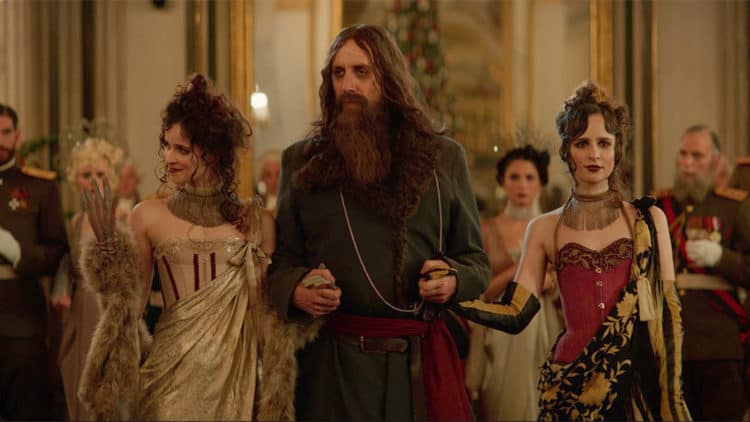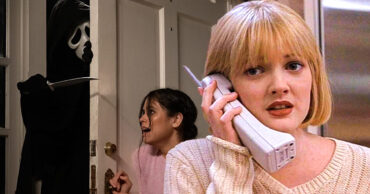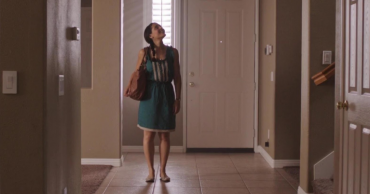
In the midst of the Spider-Man: No Way Home craze, The King’s Man came out around Christmas time and flopped hard at the box office. The prequel to the first two movies explores the beginning of the organization by focusing on Orlando Oxford’s quest to stop history’s worst tyrants and criminal masterminds from starting a war. Now, The King’s Man was also a flop with the critics as it received the lowest score out of the three films thus far on rotten tomatoes, a weak 42% on the review website. It’s certainly not on the levels of The Room or Showgirls, but it’s definitely not a good score. So, is The King’s Man a bad movie? Well…no. And these five moments will highlight why this movie is kind of awesome.
Emily Dies
In order for any opening to have a significant impact, it must leave you with an inciting incident that’s genuinely shocking, yet it makes sense for the story. Emily dies in the very first scene, thus our chance to get to know the character is limited; however, Ms. Oxford is a good and likable minor character who was willing to sacrifice herself for the safety of her family. It’s the calm before the storm before the sudden gunshot to Orlando. The action immediately thrusts you into the chaos and madness going on during this period of time and it kicks off several important arcs that will play out through the film. Emily’s death was tragic, though what really sells it is Ralph Fiennes’s reaction and Alexandra Maria Lara’s sell of being shot. Sure, the film goes with the “character says a couple of words before dying” trope, but it wasn’t as hokey as it usually comes across and it shapes Orlando as the man that he becomes throughout a good portion of the feature.
Grigori Rasputin poisons son and persuades Nicholas to withdraw from the war
Out of all of the villains in The King’s Man, Rasputin stands out the best. The high-ranking member of The Shepherd’s Flock’s unique ability to use spells and poisons to get the better of his enemies introduced a cool element that Matthew Vaughan takes advantage of. For this sequence, the film develops the minor villain by cementing his power and just how dangerous he is. The so-called “priest” poisons the son of Nicholas II and tricks the Tsar of Russia to give up his power and withdraw from the war. The scene is quite effective in establishing the character of Grigori Rasputin and advantage The Shepherd’s Flock as the big bad of the feature. Rhys Ifans fits this role like a glove. He simply disappears into the villain role and manages to showcase a balanced character without ever going over-the-top.
Grigori Rasputin’s battle against Oxford, Shola, and Conrad
The most exciting sequence of entire movie. The character building of Rasputin allowed for this moment to truly shine. First the realization that the poison didn’t affect him to the danger of Orlando actually dying. This was when Ralph Fiennes character was at his most vulnerable as the franchise could’ve easily moved onto Conrad and how he had to step-up and go into battle. The dance/fight was truly fun and inventive, and the tension remained high throughout the entire ordeal. Rasputin was never killing all three of these men, but the possibility of him getting away was also ideal. Having Conrad jump into action and put an end to the frightening priest exemplified his heroism and why he was fit to go into war. He may have fumbled early on, but he proved his worth as a solider here. Though the fight was wildly entertaining, the big character moment for Conrad here is what helps elevate this entire sequence.
Conrad’s Birthday
Following the death of Emily, the central focus of The King’s Man becomes the relationship between Orlando and Conrad’s difference in ideologies. Haunted by his wife’s death and vowed to keep the young boy safe, Orlando absolutely refuses to let his son enter into the war. However, it appeared that the situation changed when Orlando allowed him to play a key part in their plan to kill Grigori Rasputin. It likely didn’t help that Conrad fumbled and was forced to put his father in the difficult situation, but Orlando’s near death experience against The Shepherd’s Flock member likely confirmed his stance on keeping his son away from the war. This scene nicely displays the comradery amongst the group but still provided a nice element of tension once the moment of happiness settles. It’s a simple scene that manages to still have a major impact on the story and showcases the likeable side of the protagonists.
Conrad’s Journey Through No Man’s Land
It was a bold move to focus most of the second act on Conrad’s time in the war. While it did slow down the film as it took the focus away from Orlando, this was still a strong sequence that highlights the gorgeous cinematography and gave Conrad a strong amount of depth before his eventual doom. His death was indeed shocking, as it was expected of him to complete his hero’s journey following his nightmare time on the battlefield. Vaughn was wise to not portray him as an invincible warrior, and though he survives the night, Conrad officially realizes what he got himself into and actually cries showcasing that these brave men and women aren’t just emotionless tools for destruction. Sure, he walks through the battlefield with Archie Reid on his shoulder unscathed, but it’s nice that the film showcases the mental hell that these soldiers can go through as well. Conrad may have died in the end, but his journey was never short of exciting.
 Follow Us
Follow Us




